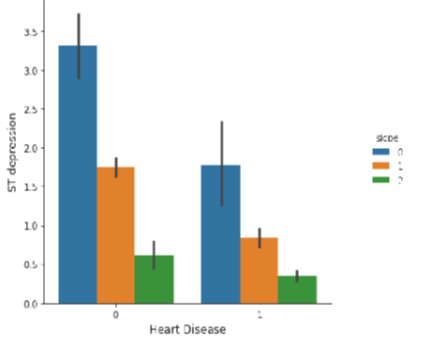


Indian Journal of Science and Technology
Year: 2022, Volume: 15, Issue: 12, Pages: 527-534
Original Article
Suresh Subramanian1*, Y Angeline Christobel2*
1Chairperson, Department of Multimedia, College of IT, Ahlia University, Kingdom of Bahrain
2Dean, School of Computational Studies, Hindustan College of Arts & Science, Chennai
*Corresponding Author
Email: [email protected]
[email protected]
Received Date:13 January 2022, Accepted Date:19 February 2022, Published Date:25 March 2022
Objective: To propose the most effective machine learning algorithm for predicting cardiac problems. Methods: The dataset used for this study is “heart” which was taken from www.kaggle.com. The heart dataset contains 13 features and a target variable. It is divided into 70 percent training set and 30 percent testing set. K-Fold cross-validation is used in this study for model evaluation and model selection. The K value chosen is ten. A Hybrid Ensemble machine learning model is built using a heterogeneous collection of weak learners in this work. To construct a hybrid ensemble model, weak learners such as “Logistic Regression”, “Decision Tree”, “Support Vector Machine”, “KNearest Neighbor”, and “Naive Bayes” are used. Normally, in an ensemble model, a homogeneous group of weak learners is utilized, however in this study, a heterogeneous group of weak learners is used. The parameter used in this study is accuracy. Accuracy of all the weak learners is found and compared with the hybrid ensemble model. Findings: Weak machine learning models are combined to create an ensemble model. The ”Hybrid Ensemble model” has a 98 percent accuracy rate and outperforms all weak learners such as “Logistic Regression”, “Decision Tree”, “Support Vector Machine”, “K-Nearest Neighbor”, and “Naive Bayes”. Novelty and applications : For the prediction of heart problems, the hybrid ensemble model is recommended since it extracts more accurate and valuable data from huge amounts of data, making prediction easier for physicians.
Keywords: Machine Learning; Ensemble Model; Weak Learners; Homogeneous; Heterogeneous
© 2022 Subramanian & Christobel. This is an open-access article distributed under the terms of the Creative Commons Attribution License, which permits unrestricted use, distribution, and reproduction in any medium, provided the original author and source are credited.
Published By Indian Society for Education and Environment (iSee)
Subscribe now for latest articles and news.